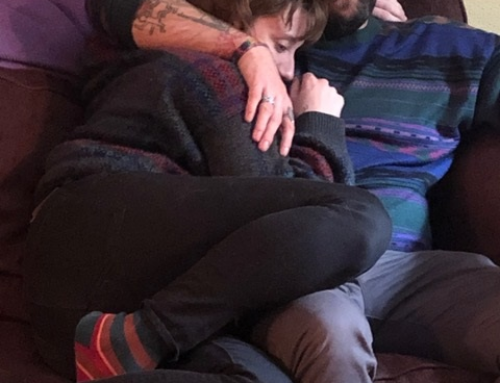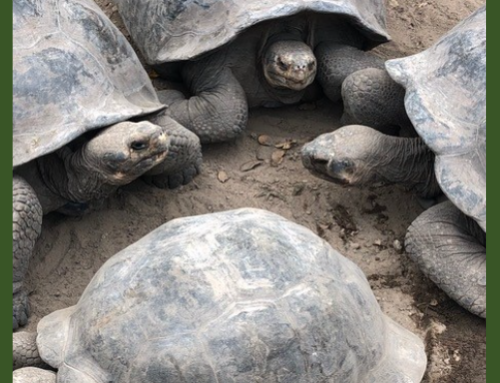Beyond the Golden Rule
(do unto others as you would like done unto you)
It’s the quick response without really thinking. No ill intent or malice behind our words. But if we want to grow, not just as Wild leaders but as Wild human beings, and continue on a path of deeper empathy in our communication, we’ll need a good deal of self-reflection, curiosity, and a willingness to be Wildly Present.
Imagine a scenario where you are talking with someone who is under a lot of stress. Say they have a work project that is really overwhelming. We tend to reassure others based on what works for us. So your inclination, based on your own experience of being stressed out and what you have found helpful, might be to reassure them by saying ‘it’s alright’ or ‘take a deep breath, it’s all going to work out just fine.’
Communication, however, is decidedly NOT one size fits all.
Not even one size fits the same person the same way every time. To move from being Present, which would look something like the above scenario, to being Wildly Present (the practice of giving your undivided attention) asks us to pause, to be curious about the person in front of you and what they may need in this moment, knowing it could be very different than what you might need or welcome.
It’s about understanding that our natural impulse may or may not work for the other person. We humans are complex animals, with very different life experiences and responses to things like stress. It could be that your calming reassurance is spot on. It could also be that it is received more like nails on a chalkboard than the soothing balm you were going for.
We are not going to get it right every time. Far from it. But that pause can help, along with the humility to try again, even to own it and take another run at it: ‘I think I just made it worse, I’ll bet nothing about this feels fine right now. How can I help support you?’
The deep breath that you were going to suggest is probably better suited for you. A breath to ground yourself, to understand and acknowledge what works for you. Then a pause to remember that we all see things through our own lens of cultural values and communication styles. And, we tend to project those outward, assuming they are “right” and “normal” and will work for everyone.
So…a deep breath and a moment to consider what this person would find helpful. Do you know? If not, ask: ‘I can see you are totally stressed out about this. If it were me, I’d want to be talked off the cliff right now. What would be helpful for you?’
Reassurance takes many forms. It might be that agreeing with them rather than tamping down their feelings would be more helpful. You could say, ‘That really stinks! Not sure how you are going to handle it, but I’ll bet you will.’
For some, they don’t want it acknowledged at all. For others, they need to unload what they are carrying inside. For still others, it’s most helpful to leave them alone. Communication, in this case reassurance, feels to me like a living, breathing thing that flexes and bends with each situation. It goes well beyond the Golden Rule and asks instead that we Do Unto Others as they would like to be Done Unto.
Reassurance, of course, is just one of countless ways we communicate with one another. Think about how people like to be recognized for good work. If you like receiving praise in front of a group, then, without that pause to consider the individual you want to recognize, you will likely default to assuming everyone would want that same public attention and appreciation. When spelled out this way, it’s pretty obvious that this just isn’t the case. For some, the more people the better. For others, they would prefer a quiet nod, or a moment with you one on one, or a note, or just an acknowledgement in their file. It could be any number of things.
When we dare to be Wildly Present to cultural differences, we begin to see just how broadly communication can be received. It’s about owning our perception of the world, then acknowledging that there are countless other perspectives, equally as real. It’s about imagining people’s experiences from their reality rather than our own.
You’ve paid attention. You’ve noticed that someone on your team is pretty quiet. Maybe you talk with them first on their own, tell them you’ve noticed how hard they are working, or you acknowledge something they’ve done. Then you could say ‘I want to make sure you get recognized for this outstanding work. If it were me, I’d want this shared in front of the team, but that may not be your thing. How can I best acknowledge and support this great work you are doing?’
This kind of conversation will lead to another, as you build a deeper understanding of the people you work with. At the other end of the spectrum, you’ll have more meaningful communication and impact by understanding how individuals on your team take in feedback, coaching, or the need for improvement.
This is not about ‘mastering’ communication, there is no ‘arrival,’ we all wax and wane in our ability to connect and communicate clearly. It’s about the pause, the shift from your perspective to someone else’s, and the intention behind your words and actions.
Wildly Present, the practice of giving our undivided attention, and curiosity help us shift from The Golden Rule to a place of empathy and the possibility for deeper connection and for clear and meaningful communication to take place.








